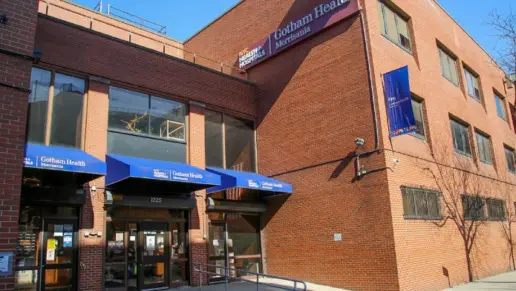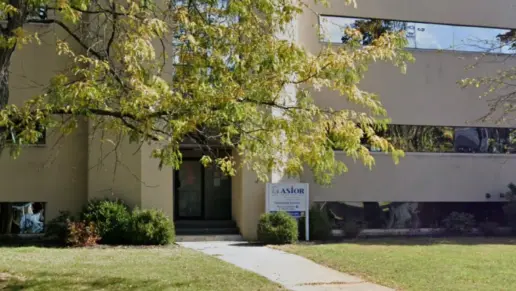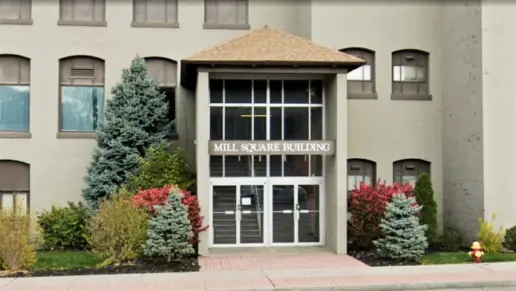Patients are treated like livestock. Psych meds are started, but no treatment of any therapeutic value occurs. Providers repeatedly ask the same questions, and repeat wrong answers back to patients. Ongoing management of previous underlying conditions are treated as unimport ...
About Ellis Hospital Mental Health Services
Ellis Hospital is in Schenectady, New York, and offers inpatient medical and surgical care, along with psychiatric services. For those who have mental health issues along with substance use concerns, dual diagnosis care is available. They assist adults with inpatient and outpatient programs, and specialized services for teens and children. They also have a crisis unit and a living space for clients and families to mingle and talk to specialists about their needs. Medicaid is accepted.
At Ellis, you’ll have one of 36 inpatient beds. You’ll have a case management team made up of nurses, counselors, and social workers to address your addictions and any underlying mental health disorder. There’ll be a range of treatment options, including arts therapy, financial counseling, and education classes on how to enhance your health.
After inpatient care is complete, you’ll move to an outpatient program that can assist you with making better life decisions. You might receive assistance for housing or other basic necessities. Transportation to and from the facility might be available.
In addition to traditional inpatient and outpatient programs, Ellis has two programs: The Living Room and The Family Room. The Living Room is a space for adults to talk openly with each other and with specialists. It’s an opportunity to drop in and participate in mental health discussions and seek community support. The Family Room is a space for kids and adolescents ages 10 to 17. They can meet with case workers, counselors, and find help for any problems that they want to talk about in a safe area.
Facility Overview
Latest Reviews
Rehab Score
Gallery
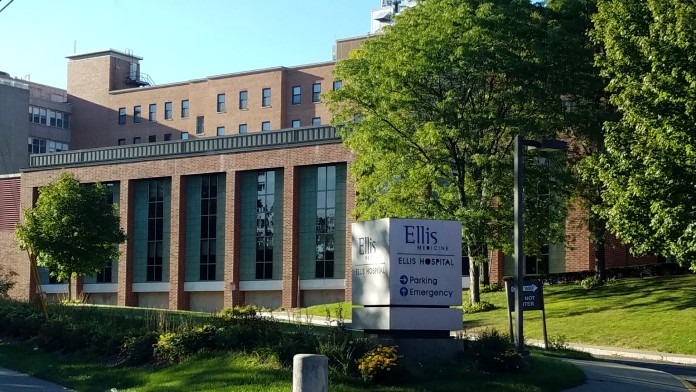
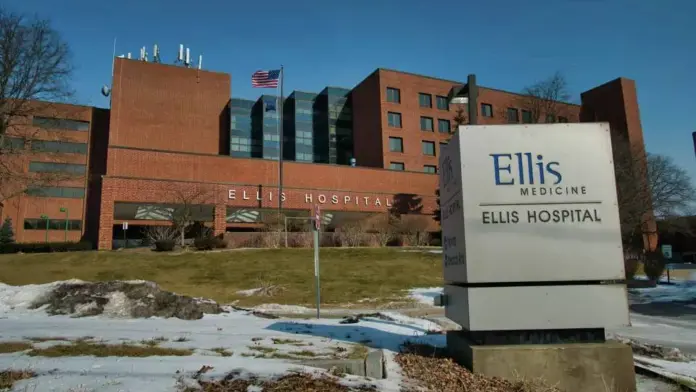
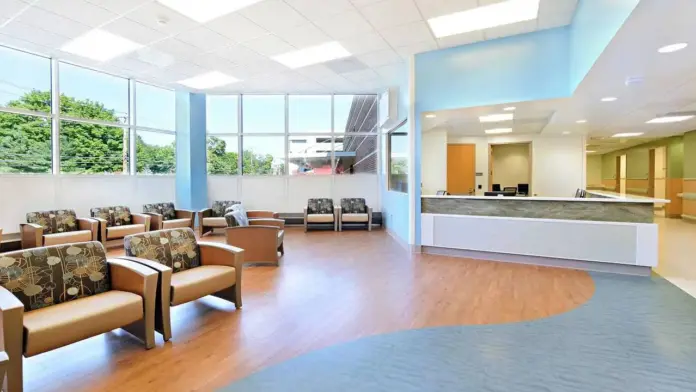
Location
Accepted Insurance
Other Forms of Payment
Medicaid is a state based program that helps lower-income individuals and families pay for healthcare. Medicaid covers addiction treatment so those enrolled can use their coverage to pay for rehab. When a program accepts Medicaid the client often pays very little or nothing out of their own pocket.
Private insurance refers to any kind of healthcare coverage that isn't from the state or federal government. This includes individual and family plans offered by an employer or purchased from the Insurance Marketplace. Every plan will have different requirements and out of pocket costs so be sure to get the full details before you start treatment.
Self-pay involves paying for treatment out of your own pocket. You can use savings or credit, get a personal loan, or receive help from family and friends to fund your treatment. If you don't have insurance or your insurance plan doesn't cover a specific program, self-pay can help ensure you still get the care you need.
Financial aid can take many forms. Centers may have grants or scholarships available to clients who meet eligibility requirements. Programs that receive SAMHSA grants may have financial aid available for those who need treatment as well. Grants and scholarships can help you pai for treatment without having to repay.
Medicare is a federal program that provides health insurance for those 65 and older. It also serves people under 65 with chronic and disabling health challenges. To use Medicare for addiction treatment you need to find a program that accepts Medicare and is in network with your plan. Out of pocket costs and preauthorization requirements vary, so always check with your provider.
Military members, veterans, and eligible dependents have access to specific insurance programs that help them get the care they need. TRICARE and VA insurance can help you access low cost or no cost addiction and mental health treatment. Programs that accept military insurance often have targeted treatment focused on the unique challenges military members, veterans, and their families face.
Addiction Treatments
Levels of Care
Treatments
Many of those suffering from addiction also suffer from mental or emotional illnesses like schizophrenia, bipolar disorder, depression, or anxiety disorders. Rehab and other substance abuse facilities treating those with a dual diagnosis or co-occurring disorder administer psychiatric treatment to address the person's mental health issue in addition to drug and alcohol rehabilitation.
Mental health rehabs focus on helping individuals recover from mental illnesses like bipolar disorder, clinical depression, anxiety disorders, schizophrenia, and more. Mental health professionals at these facilities are trained to understand and treat mental health issues, both in individual and group settings.
Programs




Clinical Services
Cognitive behavioral therapy (CBT) in New York is a short term therapeutic method used to treat substance use and mental health disorders. CBT typically lasts from five to 20 sessions, based on the individual's needs.
During dialectical behavior therapy in New York, you and your therapist will look for triggers and patterns that are guiding your emotions. This involves keeping a diary of your emotions and situations and sharing this each week with the therapist. This information will determine what you work on in each session.
Group therapy is any therapeutic work that happens in a group (not one-on-one). There are a number of different group therapy modalities, including support groups, experiential therapy, psycho-education, and more. Group therapy involves treatment as well as processing interaction between group members.
Men and women in New York undergoing one on one individual therapy for drug and alcohol addiction treatment will address the unique psychological and emotional aspects that are often associated with addiction triggers. Your therapist helps you build a relapse prevention plan and set achievable goals to improve your mental health and achieve long term sobriety.
Trauma therapy involves working through the psychological and emotional impact of a traumatic event. You learn to identify the triggers and develop coping mechanisms that build a sense of safety and trust in yourself.
Staff

President & CEO

COO

Chief Medical Officer

Chief Nursing Officer

VP & CFO
Contact Information
1023 State St
Schenectady, NY 12307





